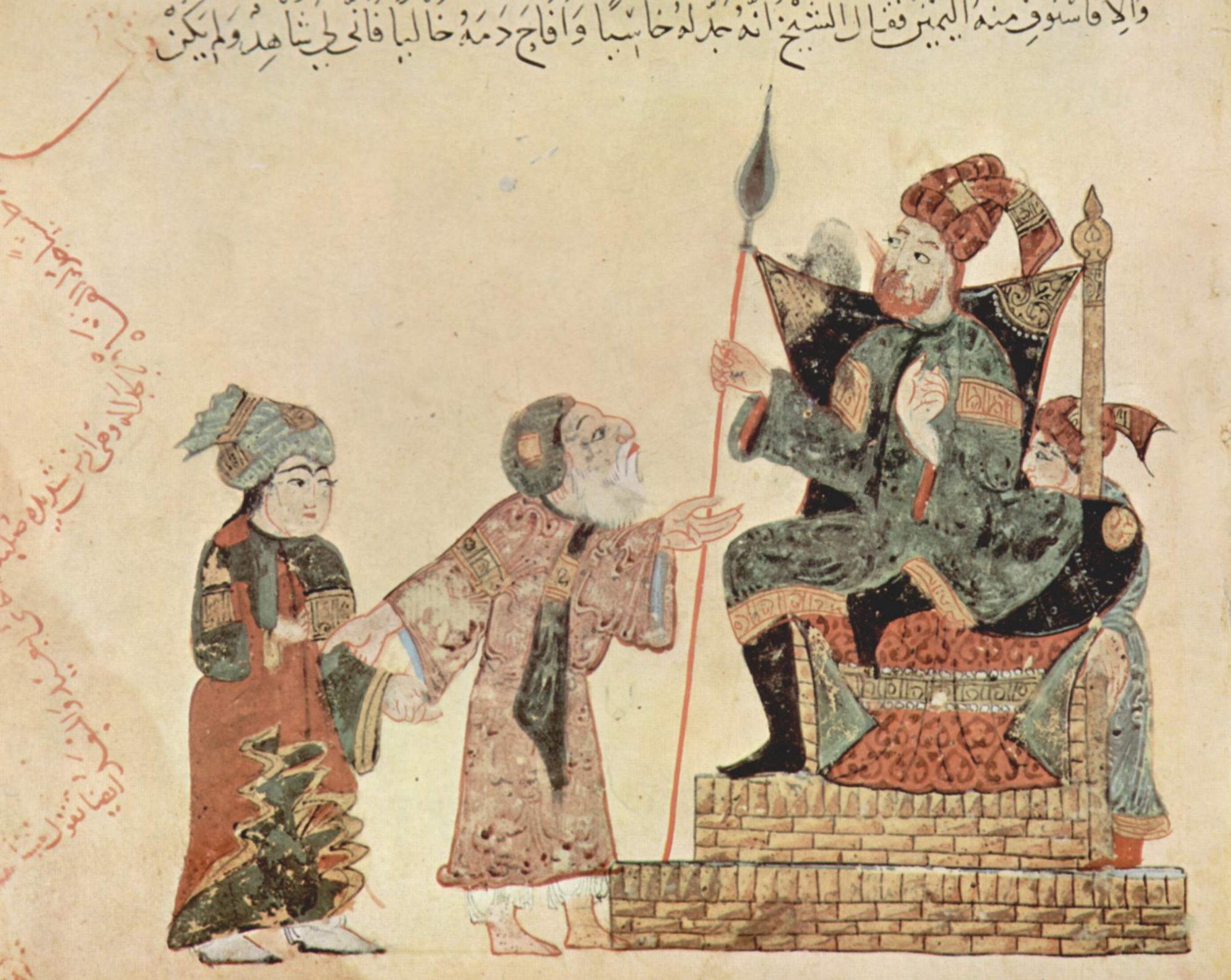The Conference, organized by Prof. Dr. Irene Schneider and Dr. Nijmi Edres (Seminar für Arabistik, Göttingen University), is the second conference of the Project “Understanding Sharia: Past Perfect/Imperfect Present” (US-PPIP) and took place in collaboration with the other partners of the US-PPIP project: the Universities of Exeter, Leiden and Bergen.
US-PPIP’s research in Göttingen aims at arguing the existing research and examining how courts and legal practitioners, as well as legal theorists, use past notions of gender relations and supposedly “ideal” roles to make judgements, give legal decisions and develop “authentic” Islamic role models.
Being part of this broad project the conference aimed at investigating two main issues: how Muslim judges and scholars use legal tradition to assess modern gender roles and deal with women’s rights? How are gender roles in the Prophet’s time related to the requirements of a society of the 21st century?
During first two days, special reference has been made to Palestinian cases, being the research of Prof. Dr. Irene Schneider and Dr. Nijmi Edres focused on the Muslim Palestinian communities living inside the Israeli borders and the West Bank. On Saturday the perspective got broader, touching different locales, from Jordan to the Indian Ocean.
The Conference was opened on Thursday 12th of October with a public lecture held by Prof. Joseph Massad, invited as keynote speaker. Dr. Joseph Massad, Professor of Modern Arab Politics and Intellectual History at the Department of Middle Eastern, South Asian and African Studies (MESAAS) of Columbia University-New York, addressed the broad topic of “Traditionalizing Modernity”. In his speech Prof. Massad presented the various historical transformations of Shari’a into a modern European-style code as emerged in several locales, from colonial India and Algeria to the Ottoman Empire, acknowledging the entangled connections between the historical transformation of Muslim law and the European colonial project in Asia and Africa. The speech offered a wide framework useful to introduce and contextualize the core issues addressed by the conference and, thanks to highly critical insights, opened up the debate about the notions of “gender” and “egalitarianism” and the possibilities of radical reformulations and juridical change in gender relations in both Europe and the Arab world.
On Friday 13th the first panel focused on the direct experience of two practitioners: qadi Iyad Zahalka (Shari’a Court of Jerusalem, Israeli Shari’a Court of Appeal) and qadi Somoud al-Damiri (Supreme Judge Department, Palestine). In his speech Zahalka addressed the notion of “egalitarianism” presenting his perspective as a Muslim judge working in the Shari’a Courts in Israel. From the other side of the green Line, the paper sent by qadi Somoud al-Damiri (read by Prof. Irene Schneider) provided an overview of the different juridical systems overlapping in the West Bank and the Gaza strip. Moreover, it offered an interesting point of view on the work of female judges in the West Bank and their commitments to gender equality, presenting a review of legal texts on personal status issues, judicial implementation and observations for further improvement of women’s rights.
The debate on Palestinian female judges and their position in the West bank has been developed also by legal anthropologist Laila Abed Rabho (Truman Research Institute, Hebrew University of Jerusalem), who further discussed “the appointment of female Qadis (judges) in the Sharia court, Palestine as a case study”. From the same anthropological perspective, the paper of Ido Shahar (Haifa University) dealt with “the socio-legal consequences of the dissolution of mixed marriages” presenting two interesting cases from Israel.
On Friday afternoon, the lawyer perspective was presented by Moussa Abou Ramadan (DRES; Strasbourg University) and Mutaz Qafisheh (Hebron University). In his talk, Mutaz Qafisheh introduced the legislative process that in West Bank and the Gaza Strip lead to reform Palestinian family law in light of the Convention on the Elimination of all forms of Discrimination against Women (CEDAW), without reservations. The highly critical paper underlined, despite political will to ensure gender equality and legislative enactment line with international standards, the difficulties towards a real change of practices and the necessity of a comprehensive reform process involving socio-economical, educational and cultural transformations of the Palestinian society. Similar in its provoking slant, the paper of Moussa Abou Ramadan addressed the dual legal system of religious and civil law in Israel underlying distortions in the implementation of rights and duties of husbands and wives, focusing on child support allotted to Muslim children in family courts in Israel. Children rights were at the core of the paper of Nijmi Edres (Göttingen University) as well. Her talk focused on “the conceptualization of the ‘interest of the child’ through the use of the classical concept of ‘haqq Allah’” by Palestinian judges with Israeli citizenship and highlighted the complexities and the implications of such a conceptualization in the Israeli context. The same focus on the use of legal tradition in contemporary times was shared by Irene Schneider (Göttingen University), whose paper addressed “Uses of the Past in the Textbook for the Course of Personal Status Law at Birzeit University/West Bank (Winter Semester 2013/14)”.
On Saturday morning, the conference works were opened by Yitzhak Reiter (Ashkelon Academic College), who compared two case studies of Women Activism at Jerusalem Holy Places, Murabitat al-Aqsa and the Women of the Wall, considering how they creatively represent themselves in relation to their struggles and their different religious values. The attention of the participants turned then to Jordan, thanks to Doerthe Engelcke (Max Plank Institute for Comparative and International Private Law), who addressed “the Legal Practice of the Greek Orthodox Court in Amman: between Legal Borrowing and Clerical Authoritarianism”, giving the participants the possibility to compare the attitudes of Muslim judges in Israel and the West Bank to those of the Orthodox colleagues in the neighboring country. The last three speeches of the conference were addressed by members of the USPPIP project, Omar Anchassi, Robert Gleave and Mahmood Khooria, who focused on the relations between gender and Islamic law considering the use of Muslim legal tradition and the attitudes of Muslim judges towards three different issues. The paper of Omar Anchassi (Exeter University) analyzed “Juristic Attitudes to female Literacy from the Formative to Modern Periods”, exploring the elements used by Muslim jurists to discourage female literacy on various grounds. Differently, the paper of Robert Gleave (Exeter University) explored ritual restrictions on women during menstruation through the examination of a particular set of hadith found in Shi’i collections. Finally, Mahmood Kooria (Leiden University) analyzed jihad discourses of the late-nineteenth and early twentieth century against matrilineal customs.
The conference works were closed with a wrap up by Monika Lindbekk (University of Oslo), who underlined the recurrence of four core topics in the talks addressed by the speakers: uses of the past in legal discourse and practice; gender implications of uses of an “Islamic past”; gender and judicial authority (with special reference to the experience of female judges); theory and practice in relation to the wider social formation.











